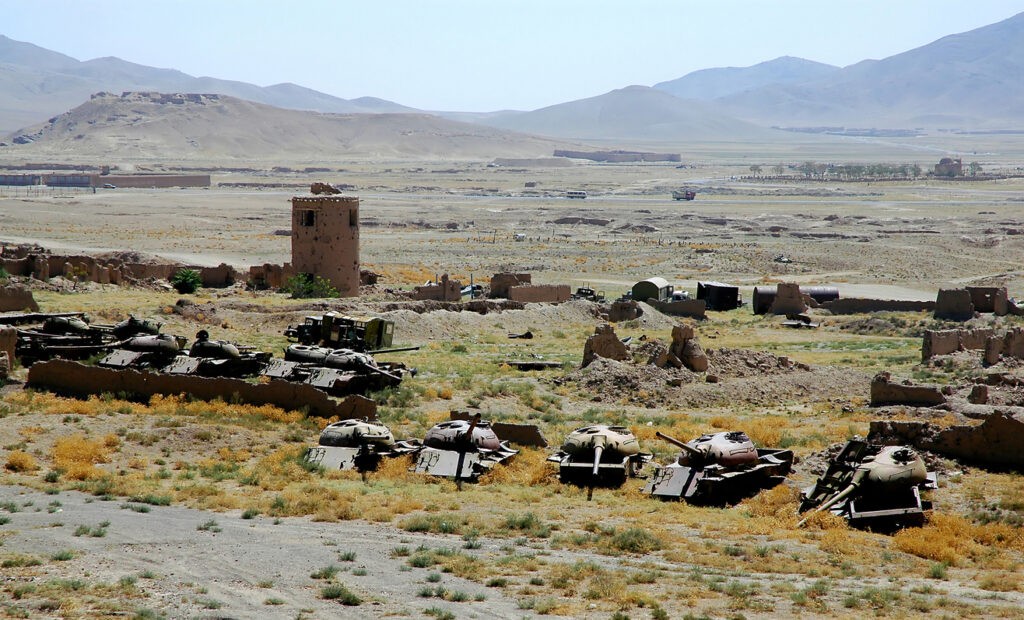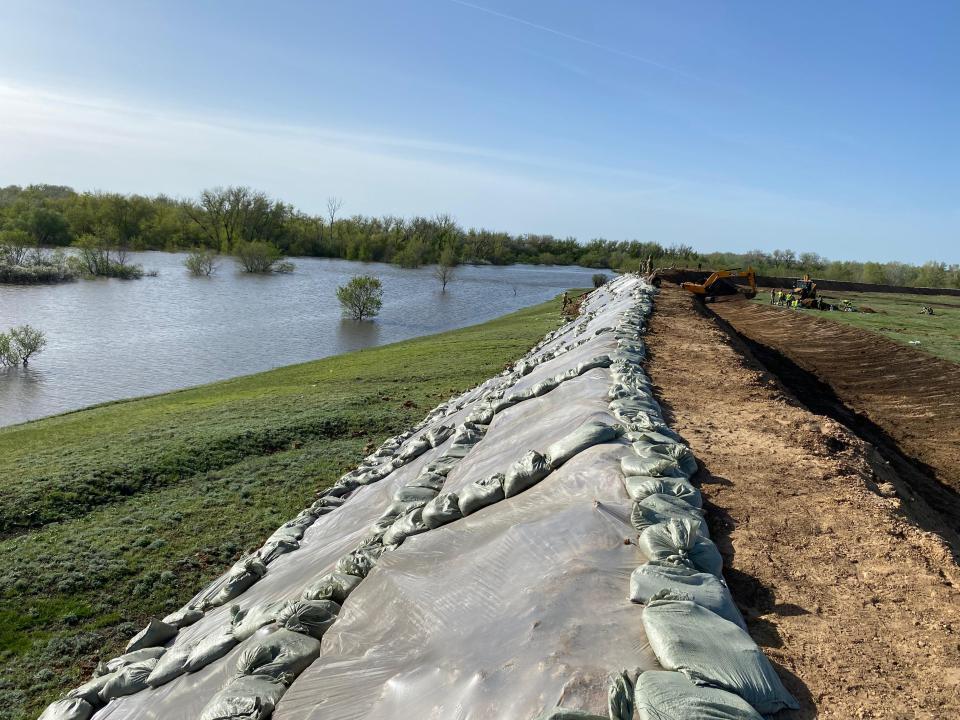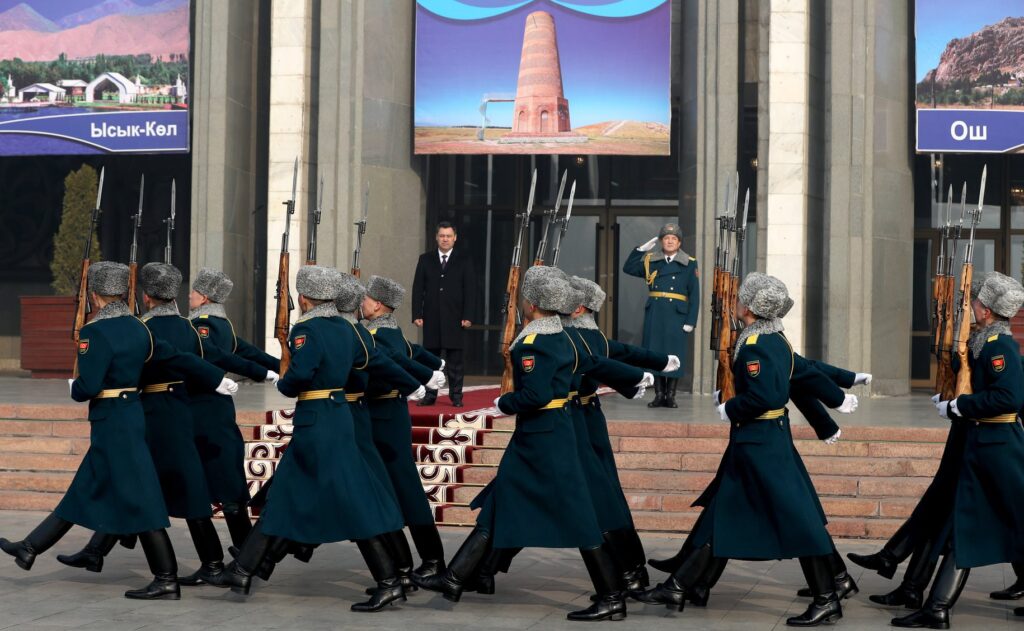‘Without security there can be no development’ – a view from Kazakhstan on the future of Afghanistan.
Almost three years have passed since the Taliban came to power in Afghanistan. Since then, what are the highlights in terms of the Taliban’s relations with the outside world? In fact, there are none. The situation is a dead end, with the international community and the authorities in Kabul trying to resolve clearly unsolvable issues and Afghanistan continuing to face a humanitarian crisis.
Given the many, contrasting proposals offered by various actors, the Taliban need a chance at a breakthrough whereby they would be the key player and thus could take responsibility, while for the international community this would be a sort of “maturity test” to gauge the Taliban.
“Either way, change will come. It could be bloody, or it could be beautiful. It depends on us.” (Arundhati Roy, Indian author)
Abstraction
In the context of current geopolitical realities after the fall of the “democratic” regime, Afghanistan is in a gap between the holistic experience of the past and a future that is yet to be outlined. This creates a unique opportunity for the country to transcend its history as the “graveyard of empires” and determine its own fate while integrating into the international community.
How the de facto authorities in Afghanistan handle this opportunity will not only determine the future of the Afghan people and shape the situation in the region, but also influence the development of the global security paradigm.
At this important moment, the international community must support Afghanistan in determining its own future. Otherwise – if external actors continue to promote political blueprints – Afghanistan will once again become a site for proxy wars, an arena of rivalry and a fertile ground for old narratives about international terrorism and other threats. It is advisable to stop slamming the Taliban for their democratic failings, which they do not understand, as this will not yield results.
If Kabul is really seeking to be a key player in Asia, a regular participant in international affairs, and to realize its significant geographic and economic potential, then it must now begin to implement practical initiatives aimed at broadly involving countries in the region and international organizations in a dialogue on security.
*It is internal security and stability that represent the main problem of modern Afghanistan if it wishes to integrate into the international community. The issues of women’s rights and inclusive government may be important as well, but they are not the priority for today.
Without security there can be no development – this is the slogan by which the new Afghan authorities should build relations with the world.
Today, the main geopolitical challenges for Afghanistan are largely related to the economic interests of regional countries: India, Iran, China, the UAE, Pakistan, Russia, Turkey and the Central Asian countries, for which the promise of Afghanistan is obvious. Indeed, it is these countries that can look past the Taliban’s democratic failings and see the root of the problem.
Security is the basic condition for stable economic growth. Trade relations alone, which the Taliban have been relatively successful at building, are not enough. Not a single normal investor will enter Afghanistan until the authorities can provide a reasonable and clear level of security. We can discuss the Turkmenistan-Afghanistan-Pakistan-India (TAPI) gas pipeline or the Trans-Afghan railway for another decade, but they will go nowhere without security.
Following the collapse of the infamous Doha Accord, the issue of ensuring Afghanistan’s internal security remains unresolved to this day. New options from the international community have not yet been formulated, possibly because individual capitals do not see an interest in them. Meanwhile, the Taliban have taken the position of “tout va très bien, madame la Marquise” (“everything’s fine, Madame la Marquise” – a reference to the French song by Paul Misraki). The world continues to associate the Taliban with international terrorism, especially after the recent Moscow terrorist attack. But is it not time for the Taliban to take concrete measures to prove (demonstrate) that everything really is fine, or, if it is not, to develop effective mechanisms to make it so?
Are there solutions?
It seems that since the Anglo-Afghan wars of the 19th century, the world has already become accustomed to Afghanistan as a given with which it must learn to live, as a place where geopolitical steam can be let off. But it should not be like this; the Afghan people deserve progress.
Objectively speaking, the solution is the Taliban. Their history shares the same early pages as that of the “Afghan Islamic State” and other small terrorist groups; they understand the issue of terrorism better than others. Most sources point to this, besides, of course, the Taliban themselves. For example, Amrullah Saleh, the former vice president of the previous regime in Afghanistan, provided an objective analysis of the information on Islamic State – Khorasan Province in an article for the website sangar.info.
This is not an attempt to blame the Taliban or dredge up the past; it is a desire to show that only the Taliban are capable of ending terrorism in Afghanistan once and for all. No other military-political group or organization that is in opposition to the Taliban has coped or will cope with this evil.
The Taliban need to act now. First of all, this is dictated by tensions in the Middle East, where every global and regional power is involved. Escalation there will negatively affect the situation around Afghanistan itself. In this enigmatic geopolitical situation, the Taliban can either take the lead on new security arrangements or again experience an undesirable worsening of the situation in and around Afghanistan.
At this stage, the Taliban have every opportunity to lay the foundation for a new model of regional and international security, which would allow them to create conditions for the return of Afghanistan to the system of normal international relations.
What will this look like in practice?
Kabul needs to initiate a new contact forum on Aghan internal security with the participation of the country’s neighbors.
The Taliban leadership, as well as the international community, need to understand one truth: the decisive role in the new security model should be played by Iran and Pakistan, which, of course, have acted as antagonists in modern Afghan history, using the country as a zone for proxy wars with third parties (the USSR, the US and its allies, parties to civil wars).
Iran and Pakistan are the most historically in tune with Afghanistan in terms of ethnic, economic and political conflicts and border issues. In addition, all three countries are to be involved in developing international transport and energy infrastructure with the participation of a wide range of countries.
The role of Tehran and Islamabad is also important given the fact that Iran and Pakistan, like Afghanistan, have long been countries directly or indirectly connected in the international discourse to the spread of international terrorism.
The need to combat terrorist activity on the Afghan borders with Pakistan and Iran – a problem that is the very acute and persistent – is such that separate intergovernmental formats between Kabul, Islamabad and Tehran should be created. Based on the objective reality, this “troika” represents the only actors that can provide guarantees of Afghanistan’s security at the international level.
The essence of the new Afghan initiative should be efforts to form a permanent trilateral, Afghanistan-Iran-Pakistan contact group on security (in fact, counterterrorism). This format will fundamentally differ from existing multilateral formats, which in reality do not have the ability to deal with Afghanistan’s problems.
The creation of a contact group should be initiated by the Taliban as the guarantor of border security for Pakistan, Iran, India, China and the Central Asian republics.
Here it is worth recalling the Islamic Military Counterterrorism Coalition (IMCTC), which includes Pakistan but not Iran. The creation of a permanent contact group would be the missing regional link for the IMCTC and would help bring the attention of the rest of the Islamic world to Afghanistan’s problems in the context of counterterrorism. Through the IMCTC, Afghanistan could become a point of cooperation between Sunnis and Shiites, which is also important for the Taliban given Afghanistan’s own Shiite population.
In the future, if the troika manages to achieve even a minimal level of understanding and establish practical cooperation, then the format could be strengthened by other actors, primarily from Central Asia.
Is a mediator needed?
Given the rather difficult, sometimes contentious relations between the three countries, the Taliban will obviously need a mediator – a country or an international organization that could provide extensive assistance in the form of political consultations, a high level of diplomatic involvement and instruments to be brought to bear. Once again, it’s up to Kabul to decide.
It is the complexity of the first steps that necessitates a mediator. In particular, public and private consultations will be required. In addition, the opposition from both the previous governments and “northern” anti-Taliban groups, as well as representatives of Afghan big business, also need to be brought into these consultations (in parallel or separately).
The consultations should primarily focus on building relationships and trust and exploring options that could meet the needs of all parties.
In this context, the Taliban could also opt for track II diplomacy, as the capabilities of the expert community in this area are clear. Afghan and foreign think tanks, experts, media and bloggers, along with social networks and public circles, can lay the foundation for advancing the set goals.
What could be expected?
- The first success could be considered established interaction and a demonstration to partners by the Taliban of a responsible attitude toward the issues common to the region.
- Regardless of the circumstances, the first steps taken by Iran, Pakistan and Afghanistan would provide a body of knowledge on the issues of Afghanistan for the international community, allowing for a deeper understanding of the realities for the further development of relations with regional and international actors.
- This is a unique opportunity for Kabul to demonstrate to the international community a constructive position and real desire to build important and adequate state institutions.
- The long-term impact would be establishing links between Afghanistan and the international community toward resolving other Afghanistan’s other pressing problems.
Aidar Borangaziyev is an Open World Foundation expert and a consultant for the Investment Group, ACME.








